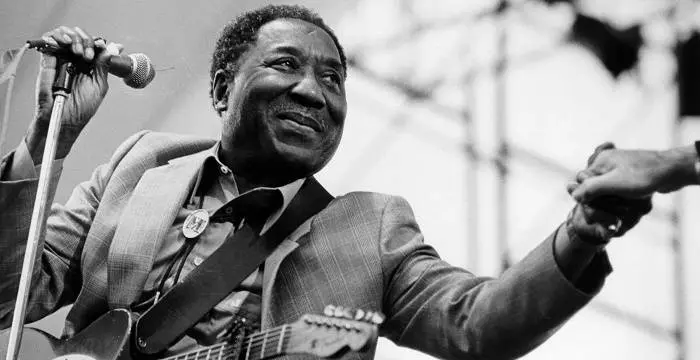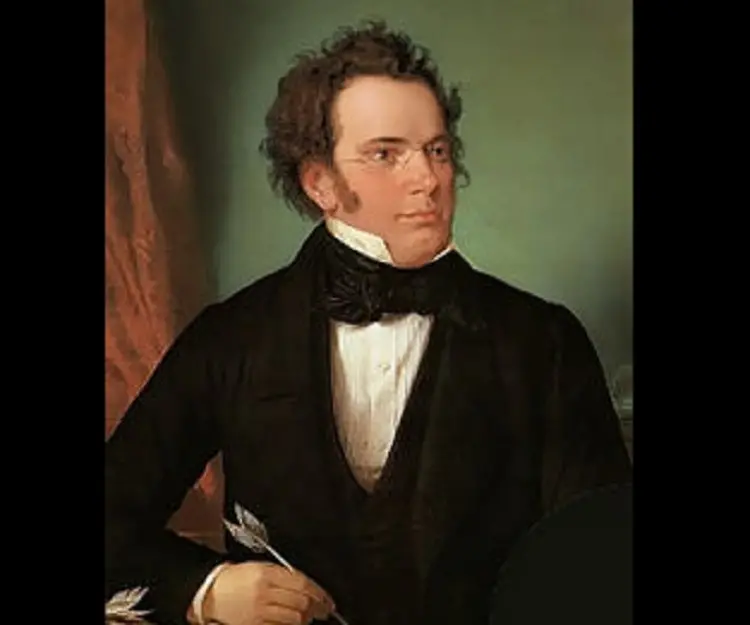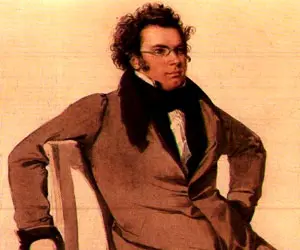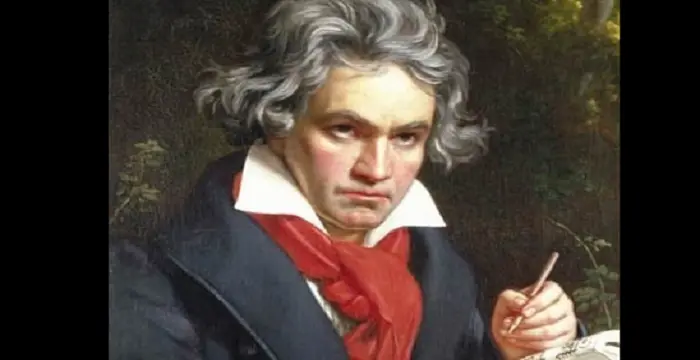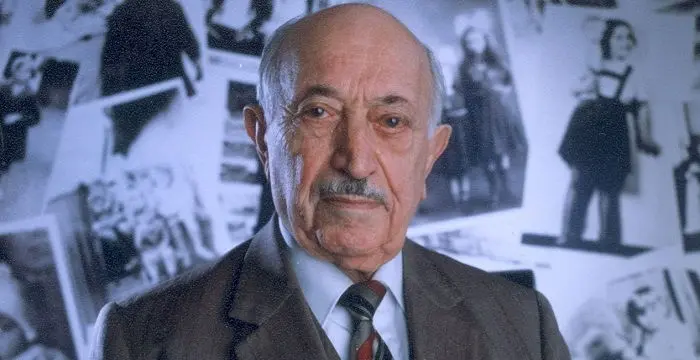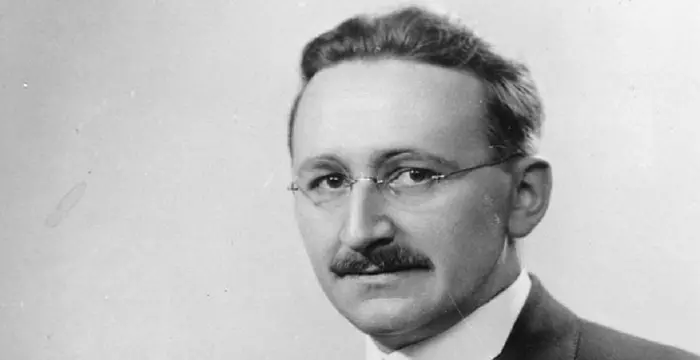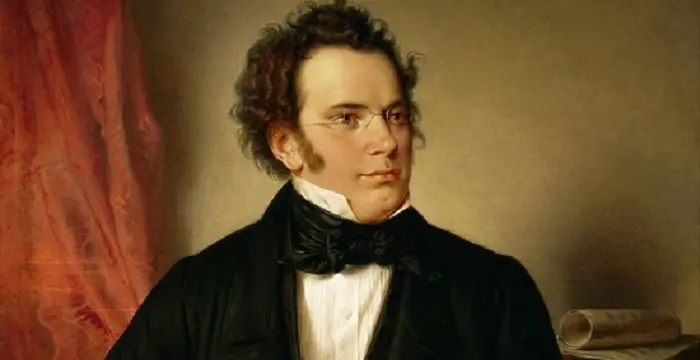
Franz Peter Schubert - Composers, Facts and Family
Franz Peter Schubert's Personal Details
Franz Peter Schubert was an Austrian composer of the early 19th century
| Information | Detail |
|---|---|
| Birthday | January 31, 1797 |
| Died on | November 19, 1828 |
| Nationality | Austrian |
| Famous | Musicians, Composers |
| Siblings | Ferdinand Schubert, Ignaz Schubert, Karl Schubert, Maria Theresia Schubert |
| Universities |
|
| Birth Place | Alsergrund, Vienna, Austria |
| Gender | Male |
| Father | Franz Theodor Schubert |
| Mother | Elisabeth |
| Sun Sign | Aquarius |
| Born in | Alsergrund, Vienna, Austria |
| Famous as | Composer |
| Died at Age | 31 |
// Famous Musicians
Ted Nugent
Ted Nugent is a hard rock musician known for his hits ‘Stranglehold’ and ‘Cat Scratch Fever’. This biography of Ted Nugent provides detailed information about his childhood, life, achievements, works & timeline.
Muddy Waters
Muddy Waters was a blues musician referred to as the 'father of modern Chicago blues.' Check out this biography to know about his childhood, family life, achievements and fun facts about him.
Travis Bacon
Travis Bacon is an American musician and actor, better known as the son of veteran actors Kevin Bacon and Kyra Sedgwick. Find more about his family, birthday, etc.
Franz Peter Schubert's photo
Who is Franz Peter Schubert?
Franz Peter Schubert was an Austrian composer of the early 19th century who became famous only after his early death. His talent as a composer of classical and romantic compositions was mostly ignored while he was alive but became significant only in the 19th century. Though his life was very short, he was a prolific composer who used to create many compositions in one single day. His works were greatly influenced by the writings of Goethe and were based mainly on the piano. His sonatas on the piano used melodies that had long lines instead of the traditional short themes and the romantic songs or ‘Lieder’ in the German language written by him put greater importance on the piano than on any other instrument as an accompaniment. He was not that well known in his early years as he was neither a literary person like many of the other composers during that period nor was a great performer or a famous conductor. But during the short time he was alive he wrote more than six hundred songs, nine symphonies, a large number of compositions for the piano and five masses. His masterpieces which brought enjoyment to many music lovers all over the world came to light only after he had passed away.
// Famous Composers
Ludwig van Beethoven
Ludwig Van Beethoven was one of the greatest composers the world has ever had. Check out this biography to know about his childhood, family life, and achievements.
Emina Jahović
Emina Jahović Sandal is a Serbian model, actress and singer-songwriter. Know more about her childhood, life, career, achievements and timeline in this biography.
John Denver
John Denver, a famous American singer-songwriter and activist, is remembered for songs like Take Me Home, Country Roads and Annie's Song. To know more about his childhood, career, profile and timeline read on
Childhood & Early Life
Franz Peter Schubert was born on January 31, 1797 in Alsergrund, Vienna, Austria. His father Franz Theodor Schubert was a schoolmaster who founded his own school, and his mother Elizabeth Vietz was engaged in providing domestic services to a Viennese household before her marriage.
He had three elder brothers named Ferdinand, Ignaz and Petrus and a sister named Maria Theresia. Out of the fourteen children that his father had (including an illegitimate child), nine had died in their infancy.
He learnt to play the violin from his father and his elder brother Ignaz when he was only six years old and also learnt to play the organ from an organ player named Michael Holzerat the ‘Imperial Court Chapel’.
His talent for performing vocal compositions was recognized by the leading authority in music in Vienna, Antonio Salieri, in 1804.
At the age of eleven he joined the choir of the ‘Imperial Court Chapel’ after passing the entrance examination and received his formal education at ‘Stadtkonvikt’ from 1808 to 1813.
He not only sang in the choir but also played the violin in the orchestra and was also an exceptional student. He left the choir, but not the seminary, at the age of fifteen when he could nolonger sing as before due to a change in his voice.
In 1813 Franz left ‘Stadtkonvikt’ and went home after which he joined the ‘Normalhauptschule’ to obtain training as a teacher.
During his educational days he was befriended by a 20-year-old law student named Joseph Spaun who formed an orchestra made up of his fellow students.
Budding Composer
Franz Peter Schubert composed his earliest ballads while he was still in high school including ‘Hage’s Klage’ in 1811 styled on those written by Johann Rudolf Zumsteeg.
In 1814 he composed his first poem ‘Gretchen am Spinnrade’ or ‘Gretchen at the Spinning Wheel’ based on ‘Faust’ written by Johann Wolfgang von Goethe.
He also composed the music of some solos of Mass which were dedicated to his lady friend Therese Grob. Haydn’s compositions had a great influence on his first symphony.
During the same year he also composed five more musical pieces based on songs written by Goethe.
In late 1814 he joined his father’s school as an assistant teacher. Around this time, he met various actors, singers, lawyers and poets who had a great influence on the young composer’s life. In the same year the ‘Mass’ composed by him was performed in Vienna.
Coming of Age
After 1814, Franz Peter Schubert started to hold private concerts at the homes of his wealthy acquaintances with the help of the singers and actors whom he befriended during this period.
He also wrote a large number of compositions in 1815 which included more than one-hundred and forty-four songs, two ‘Masses’and one symphony.
He set the music for the poems written by a large number of poets such as F.G. Klopstock, J.G. Von Herder, Friedrich von Schiller and others.
He went on composing symphonies even while working as a schoolteacher in his father’s school and wrote musical pieces for ‘Landler’, an Austrian waltz, for which he became quite famous.
He left his teacher’s post in 1816 when his application for a better post was rejected by the school authorities and decided to follow a carefree and unconventional lifestyle. From this time onwards he did not work but depended on his compositions to earn money for his livelihood.
He started performing ‘Schubertiads’, which were his latest compositions, with his friends at various Viennese homes and coffee houses.
Franz moved in with his friend Franz von Schober in 1817 and wrote a large number of sonatas to be played on the piano and composed almost fifty songs during this period.
In March 1818 he appeared on the public stage for the first time to perform some of the compositions that he had written.
In July 1818 he was appointed as a member of the Count Esterhazy’ household and during his stay with the household he composed a large number of piano duets.
He wrote his famous quintet for the piano while holidaying in upper Austria which was soon followed by other compositions such as ‘Wanderer Fantasy’, ‘Oratorio Lazarus’ and others.
Height of Fame
The musical career of Franz Peter Schubert reached its highest point between 1820 and 1823 when his operettas and songs started to be performed by both professionals and amateurs on the public stage and private concerts.
In 1820 he wrote the operetta ‘Die Zwillingsbruder’ or ‘The Twin Brothers’ which was successfully performed in the month of June in the same year.
He also composed the music for the play ‘Die Zauberharfe’ or ‘The Magic Harp’ which was performed on August 1820.
In 1821 Schubert’s music got a lot of attention when the ‘Erlkonig’ was performed and he gained some more new friends such as painter Moriz von Schwind and others. In the same year he composed his seventh symphony though he did not give it the form to be played by any orchestra.
In 1822 he started on his eighth symphony but could complete only two movements as he had fallen ill by that time. By the end of this year he was in financial doldrums and his friends left him.
During the seven days that he spent at the ‘Vienna General Hospital’, Franz Peter Schubert was somehow able to start composing a few of his famous songs which included ‘Die Schone Mullerin’ or ‘The Fair Maid of the Mill’ and also an octet for string and woodwind instruments.
During the period 1826-27, Franz Peter Schubert saw the recurrence of his illness but also composed two of his greatest masterpieces despite his deteriorating health.
He acted as a torchbearer during the funeral of Beethoven in 1827 and wrote his greatest masterpiece during this time.He completed the two series of ‘Impromptus’ for the piano at the end of 1827.
On March 26, 1828 he took a part in a concert where his own works were performed and also attended the first anniversary of Beethoven’s death on the same day.
Major Works
Franz Peter Schubert had written numerous compositions which include sonatas for the piano, waltzes, trios, quarters and quintets for the piano, chamber sonatas and symphonies.
In 1827 he wrote his greatest masterpiece ‘Die Winterreise’ or ‘A Winter’s Journey’ which was based on a set of twenty-four poems written by Wilhelm Muller describing the journey of a young man suffering from his lover’s rejection through the wasteland in winter.
Personal Life & Legacy
In 1814, Franz Peter Schubert fell in love with a soprano soloist named Therese Groband wanted to marry her but could not because of the harsh marriage law which required proof that heearned enough to support a family.
He contracted syphilis in May 1822 and was admitted for treatment to the ‘Vienna General Hospital’and was discharged after seven days.
His illness reappeared in 1826 and on November 11, 1828 he started having headache and nausea which were diagnosed to be caused by typhoid. He died eight days later, on November 19, 1828. He was only 31.
In 1830, money was raised through a fund to place a memorial stone over his grave.
In 1872, a memorial in his honor was constructed at the Stadtpark in Vienna.
In 1888, his grave was moved to Zentralfriedhof, which is the largest cemetery in Vienna and was placed beside musical geniuses like Johannes Brahms and Johann Strauss II.
// Famous Aquarius Celebrities peoples
Jessii Vee
Check out all that you wanted to know about Jessii Vee, the famous Canadian Vlogger & YouTube Personality; her birthday, her family and personal life, her boyfriends, fun trivia facts and more.
Luara Fonseca
Luara Fonseca, known on the web as “luaraff,” is a musical.ly star. Check out this biography to know about her childhood, family life, achievements and fun facts about her.
Shane Blanchard
Shane Blanchard is an American TV actor. Let’s take a look at his family and personal life including age, birthday, net worth, family life and some fun facts.
Franz Peter Schubert biography timelines
- // 31st Jan 1797Franz Peter Schubert was born on January 31, 1797 in Alsergrund, Vienna, Austria. His father Franz Theodor Schubert was a schoolmaster who founded his own school, and his mother Elizabeth Vietz was engaged in providing domestic services to a Viennese household before her marriage.
- // 1804His talent for performing vocal compositions was recognized by the leading authority in music in Vienna, Antonio Salieri, in 1804.
- // 1808 To 1813At the age of eleven he joined the choir of the ‘Imperial Court Chapel’ after passing the entrance examination and received his formal education at ‘Stadtkonvikt’ from 1808 to 1813.
- // 1811Franz Peter Schubert composed his earliest ballads while he was still in high school including ‘Hage’s Klage’ in 1811 styled on those written by Johann Rudolf Zumsteeg.
- // 1813In 1813 Franz left ‘Stadtkonvikt’ and went home after which he joined the ‘Normalhauptschule’ to obtain training as a teacher.
- // 1814In 1814 he composed his first poem ‘Gretchen am Spinnrade’ or ‘Gretchen at the Spinning Wheel’ based on ‘Faust’ written by Johann Wolfgang von Goethe.
- // 1814In late 1814 he joined his father’s school as an assistant teacher. Around this time, he met various actors, singers, lawyers and poets who had a great influence on the young composer’s life. In the same year the ‘Mass’ composed by him was performed in Vienna.
- // 1814After 1814, Franz Peter Schubert started to hold private concerts at the homes of his wealthy acquaintances with the help of the singers and actors whom he befriended during this period.
- // 1814In 1814, Franz Peter Schubert fell in love with a soprano soloist named Therese Groband wanted to marry her but could not because of the harsh marriage law which required proof that heearned enough to support a family.
- // 1815He also wrote a large number of compositions in 1815 which included more than one-hundred and forty-four songs, two ‘Masses’and one symphony.
- // 1816He left his teacher’s post in 1816 when his application for a better post was rejected by the school authorities and decided to follow a carefree and unconventional lifestyle. From this time onwards he did not work but depended on his compositions to earn money for his livelihood.
- // 1817Franz moved in with his friend Franz von Schober in 1817 and wrote a large number of sonatas to be played on the piano and composed almost fifty songs during this period.
- // Mar 1818In March 1818 he appeared on the public stage for the first time to perform some of the compositions that he had written.
- // Jul 1818In July 1818 he was appointed as a member of the Count Esterhazy’ household and during his stay with the household he composed a large number of piano duets.
- // 1820 To 1823The musical career of Franz Peter Schubert reached its highest point between 1820 and 1823 when his operettas and songs started to be performed by both professionals and amateurs on the public stage and private concerts.
- // 1820In 1820 he wrote the operetta ‘Die Zwillingsbruder’ or ‘The Twin Brothers’ which was successfully performed in the month of June in the same year.
- // Aug 1820He also composed the music for the play ‘Die Zauberharfe’ or ‘The Magic Harp’ which was performed on August 1820.
- // 1821In 1821 Schubert’s music got a lot of attention when the ‘Erlkonig’ was performed and he gained some more new friends such as painter Moriz von Schwind and others. In the same year he composed his seventh symphony though he did not give it the form to be played by any orchestra.
- // 1822In 1822 he started on his eighth symphony but could complete only two movements as he had fallen ill by that time. By the end of this year he was in financial doldrums and his friends left him.
- // 1822He contracted syphilis in May 1822 and was admitted for treatment to the ‘Vienna General Hospital’and was discharged after seven days.
- // 1826 To 1827During the period 1826-27, Franz Peter Schubert saw the recurrence of his illness but also composed two of his greatest masterpieces despite his deteriorating health.
- // 1826 To 11th Nov 1828His illness reappeared in 1826 and on November 11, 1828 he started having headache and nausea which were diagnosed to be caused by typhoid. He died eight days later, on November 19, 1828. He was only 31.
- // 1827He acted as a torchbearer during the funeral of Beethoven in 1827 and wrote his greatest masterpiece during this time.He completed the two series of ‘Impromptus’ for the piano at the end of 1827.
- // 1827In 1827 he wrote his greatest masterpiece ‘Die Winterreise’ or ‘A Winter’s Journey’ which was based on a set of twenty-four poems written by Wilhelm Muller describing the journey of a young man suffering from his lover’s rejection through the wasteland in winter.
- // 26th Mar 1828On March 26, 1828 he took a part in a concert where his own works were performed and also attended the first anniversary of Beethoven’s death on the same day.
// Famous Austrian peoples
Martin Buber
One of the greatest philosophers to have ever walked on earth, Martin Buber contributions to philosophy is a long-standing one. Explore all about his profile, childhood, life and timeline here.
Boris Kodjoe
Boris Kodjoe is a German-Ghanaian actor from Austria. Check out this biography to know about his childhood, family life, achievements and fun facts about him.
Simon Wiesenthal
Simon Wiesenthal was an Austrian writer and a famous Nazi hunter. This biography gives detailed information about his childhood, life, works, and timeline.
Friedrich von Hayek
Friedrich von Hayek was a Nobel Prize winning Austrian-British economist and philosopher, best known for his defense of classical liberalism. Check out this biography to know about his childhood, family life and achievements.
Walter Kohn
Nobel Laureate Walter Kohn was an Austrian-born American theoretical chemist and physicist. Check out this biography to know about his childhood, life, achievements, works & timeline.
Reina Triendl
Reina Triendl is a Japanese fashion model, actor, and tarento. Explore more about her childhood, family, personal life, career, etc.
Franz Peter Schubert's FAQ
What is Franz Peter Schubert birthday?
Franz Peter Schubert was born at 1797-01-31
When was Franz Peter Schubert died?
Franz Peter Schubert was died at 1828-11-19
Where was Franz Peter Schubert died?
Franz Peter Schubert was died in Vienna
Which age was Franz Peter Schubert died?
Franz Peter Schubert was died at age 31
Where is Franz Peter Schubert's birth place?
Franz Peter Schubert was born in Alsergrund, Vienna, Austria
What is Franz Peter Schubert nationalities?
Franz Peter Schubert's nationalities is Austrian
Who is Franz Peter Schubert siblings?
Franz Peter Schubert's siblings is Ferdinand Schubert, Ignaz Schubert, Karl Schubert, Maria Theresia Schubert
What was Franz Peter Schubert universities?
Franz Peter Schubert studied at Stadtkonvikt (1808–1813), Normalhauptschule
Who is Franz Peter Schubert's father?
Franz Peter Schubert's father is Franz Theodor Schubert
Who is Franz Peter Schubert's mother?
Franz Peter Schubert's mother is Elisabeth
What is Franz Peter Schubert's sun sign?
Franz Peter Schubert is Aquarius
How famous is Franz Peter Schubert?
Franz Peter Schubert is famouse as Composer

